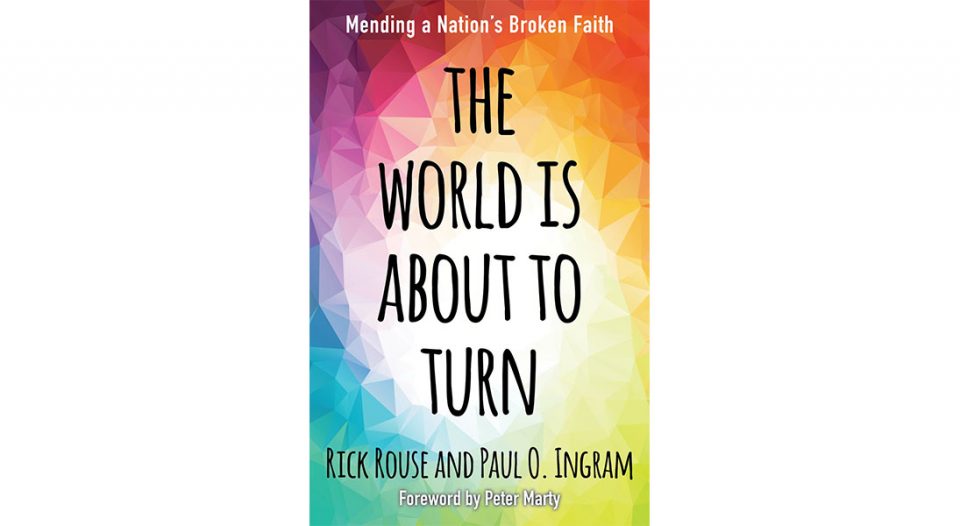There are books that provoke action and those that provide a blueprint for taking action. In The World Is About to Turn: Mending a Nation’s Broken Faith (Chalice Press, 2020), co-authors Rick Rouse and Paul Ingram give us a work that deftly aims to do both and, in large part, succeeds. Reading less like an instruction manual than a travel companion on the journey toward healing a broken world, this book pulls out insights, invites exploration and provides inspiration for the weary and eager pilgrim alike.
Rouse, an ELCA pastor, and Ingram, professor emeritus of religion at Pacific Lutheran University in Tacoma, Wash., tackle both civic and religious ills, offering honest reflection paired with biblical wisdom. The first set of chapters are sure to spark conversation and not a little disagreement when read in a group (the goal of these early sections is to provide for such conversation). A helpful set of reflection questions follows each chapter; individual readers as well as book groups should utilize them to their fullest.
The last third of the book aims to educate readers about various faith traditions and perspectives, encouraging interreligious cooperation and establishing connective tissue in the work of healing our divides. Exploring all the major faith traditions, Rouse and Ingram effectively identify the thread of compassion, reconciliation and justice-oriented action running throughout each.
The final chapter aims to put the theoretical work of the first third and the insight of the second third into practical steps anyone can take to start building bridges in these hyperpartisan days.
The book’s final chapter aims to put the theoretical work of the first third and the insight of the second third into practical steps anyone can take to start building bridges in these hyperpartisan days. Outlining 10 specific action items, Rouse and Ingram encourage us to repent, stand with the oppressed, intentionally engage civic and religious communities, honestly assess personal prejudice, reject hate and lean into love. It’s ambitious, inspiring and challenging.
Both biblically grounded and forward-thinking, the authors don’t shield their progressive views, which may be a stumbling block for some wary readers. But their approach is invitational, not confrontational.
Along with the reflection questions at the end of each chapter, the authors have included a comprehensive set of indexes full of companion reflections and readings that expand the work in useful ways.
The World Is About to Turn would be an excellent fit for any book group, justice-oriented congregational committee or even just regular parishioners wondering how they can begin to approach today’s most pressing social issues. But be warned: When taken seriously and honestly, this book will have you making action plans and taking steps toward changing the world.





